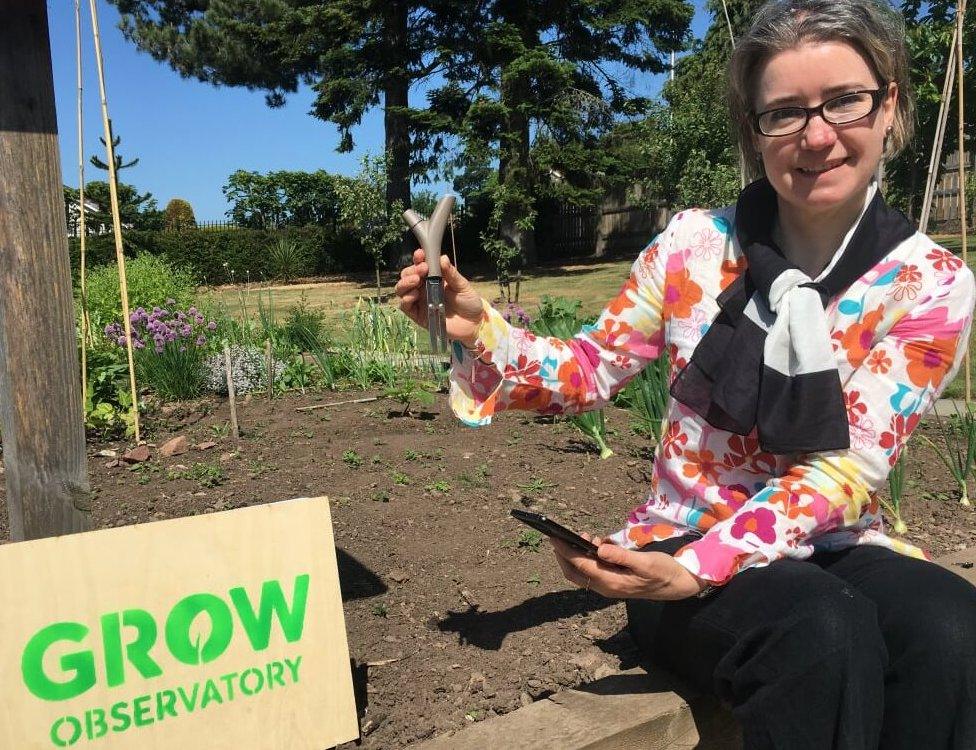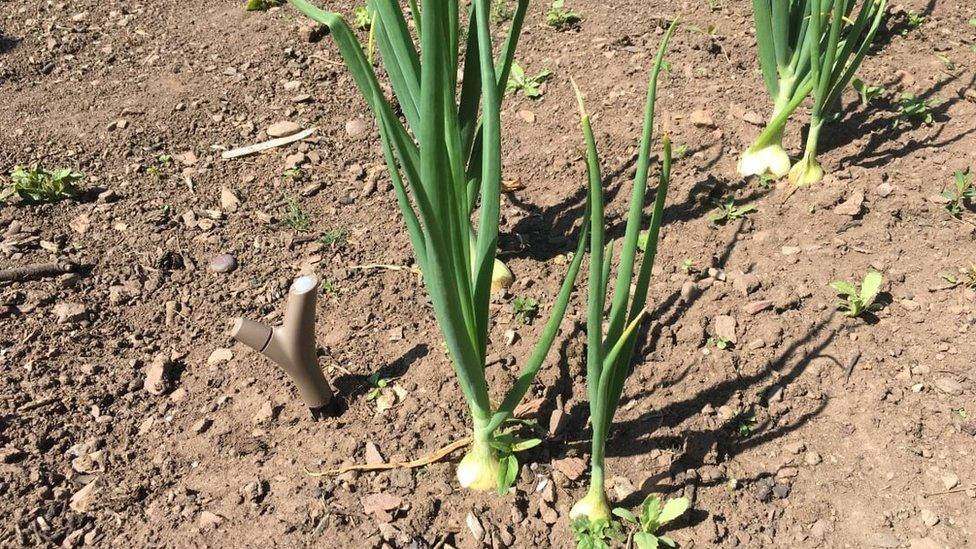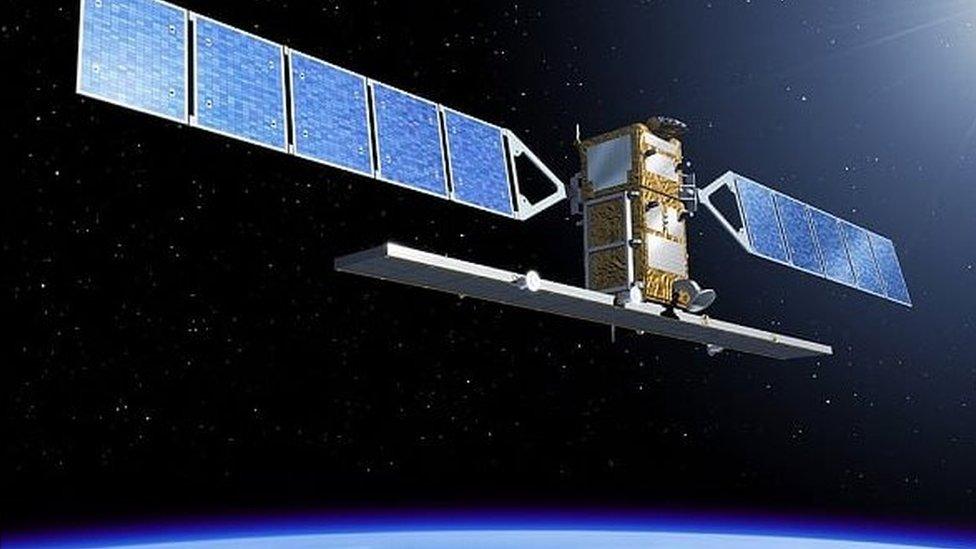Science wants to know how your garden grows
- Published

GROW project director Dr Deborah Long wants people across Europe to get involved with the research

Researchers at Dundee University are recruiting green-fingered people across Scotland as "citizen scientists".
It is part of a pan-European project in which gardeners and growers are gathering data about their soil.
The findings will be used to help meet the global demand for food.
The GROW Observatory is being led by a team at the university's Duncan of Jordanstone College of Art & Design.
They are offering free soil sensors which will build a comprehensive picture of the Scotland and Europe's growing practices.
The small sensors create "smart gardens" and send the information to a smartphone app.
The data will be used to help forecast and prepare for extreme weather events like floods and heatwaves, as part of a drive to promote sustainable food growing and soil conservation.
The moisture levels are also being watched from space, with the European Space Agency's sentinel-1 satellite reporting back its assessment of how wet or dry soils are in different areas.
The sensors on the ground will help find out just how accurate the satellite data is.

The sensors are unobtrusive and look like small beige twigs
In the jargon this is "establishing ground truth". In this case, literally.
Anyone with a garden, allotment or orchard is able to apply for one of the sensors by visiting the growobservatory.org website, external.
The sensors are unobtrusive. They look a little like a small beige twig.
Pressed into the ground alongside plants, they collect data on soil moisture, light and air temperature.
The information is passed to the gardener's smartphone via a bluetooth link, simply by standing close by. The phone passes it on to a central database.
In country where we seem to be surrounded by soil - damp soil, most of the year - it may not seem apparent that we are facing a global soil crisis.
Last year a study backed by the United Nations found the a third of the planet's was severely degraded and that we were losing 24 billion tonnes of fertile soil a year.
The Global Land Outlook said the culprits included intensive agriculture, erosion and climate change.
The €5m EU Horizon 2020 project is being led from Dundee and involves 18 partner organisations across Europe.

The moisture levels are also being watched from space
The GROW project director Dr Deborah Long said the project ranged from olive groves in Greece to apple orchards in Ireland.
"We're looking for people from right across Europe to work with us to gather data, to share data and then to use that data so that we can all understand more about soil - the importance of soil and its careful management," she added.
She said the data would also help us know more about growing: ""How do we grow more food, how do we grow healthier food, how do we grow and access food locally?"
GROW has already created a large community across Europe, with participants their experiences through its website, social media and online courses.
Unlike many other scientific projects, its name has not been manipulated to create a snappy acronym. In this case GROW simply means "grow".
The sensors won't harm your chrysanths or spuds. But they could influence how we grow our food in the future.